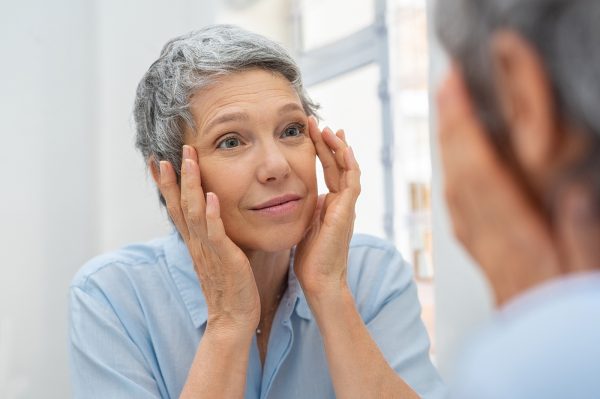Have you ever focused on—like, really focused on—your eye health?
The truth is, most of us don’t. But it takes only a few small steps to keep our eyes safe and healthy year-round.
Spring
It’s true nationwide, but especially true in Augusta as most of us prepare for Masters Week, that spring is a time for sprucing up our yards. Out come the weed whackers, the lawn mowers, the saws and bush trimmers.
Seldom do we also pull out eye protection.
“Starting in the spring, one of the greatest areas of concern for us as ophthalmologists is trauma to the eye that’s related to yard work,” said Dr. Amy Estes, an ophthalmologist at Augusta University Health. “It can be significant.”
Any kind of motorized yard tool can cause even tiny sticks or stones to become fast-moving projectiles that could harm your eyes.
A simple solution is to invest in a pair of safety glasses, available at any home improvement store. Sunglasses will offer some protection, too, but aren’t ideal. “For yard work, it’s important to look for safety-grade lenses, and many are available now that look just like sunglasses,” said Estes.
Summer
If you wear contacts, here’s a fact you might not have known: It’s recommended that you should never wear contacts while you’re swimming.
“If you’re a contact lens wearer, you have a higher risk of contracting an eye infection if you wear your lenses while in the water, whether that’s the ocean, lake/river/pond water or a swimming pool,” said Estes.
The problem is that water can be trapped under the lens, and if the water contains bacteria—or, rarely, a certain amoeba common in warm water—it can trigger an infection.
And yes, this does go for pools, too. Even if you are confident the pool you frequent has adequate chlorination, the chemicals in the water will likely irritate your eyes while you’re wearing your lenses.
If you truly can’t see at all without your contacts, prescription goggles are available.
Fall
People talk about allergies all the time in the spring, but forget that the fall allergy season can be just as challenging, thanks to ragweed.
Along with taking your allergy medications, over-the-counter, preservative-free artificial tears can not only help soothe your itchy eyes, but also help wash out pollen and other allergy-causing particles.
Just make sure to read the label, and don’t purchase drops that also mention “getting the red out.” “Once you stop using them, these drops can actually cause rebound inflammation, so your eyes are more red than they were before,” said Estes.
Winter
The winter season already tends to have less humidity, and when you add in the dry air in our homes and at work, thanks to our heaters, our eyes can become dry, itchy, and irritated. Long-term, dry eye can break down the surface of the eye, leaving it more prone to infection, which could lead to scarring. Even mild dry eye can cause intermittent blurriness, said Estes.
Artificial tears are a must. But again, read the label. If you’re still using the same bottle of artificial tears you had in the fall, it’s way past time to get back to the drugstore. Many labels advise discarding eye drops after 28 days in order to ensure bacteria haven’t been introduced into the bottle.
Any time of the year
“Throughout the year, if you have certain eye problems that aren’t going away after a few days—whether that’s pain or irritation or a possible infection—see your eye doctor right away,” said Estes.
Also, most of us aren’t great about going to see our primary care physician once a year. We’re worse about seeing our eye doctor. But even if you don’t have a single thing wrong with your eyes, it’s a good idea to get regular checkups. And if you wear contacts or glasses or have eye problems, an annual checkup is definitely needed. “It’s just a good rule of thumb,” said Estes.





